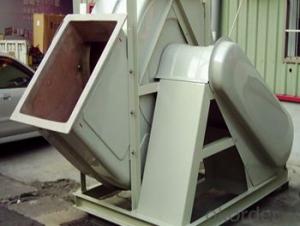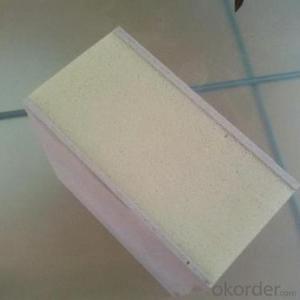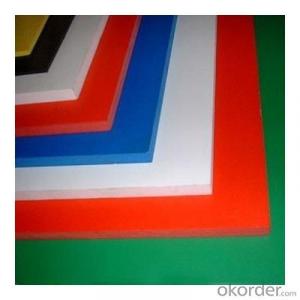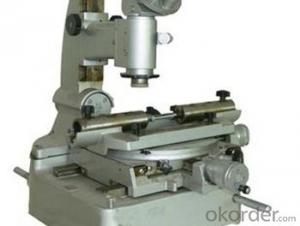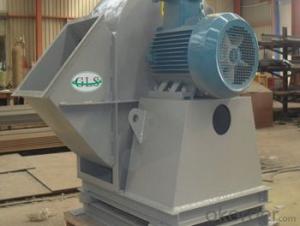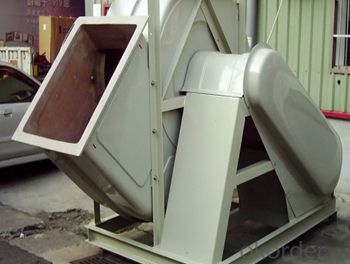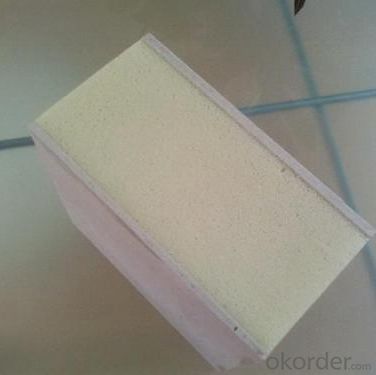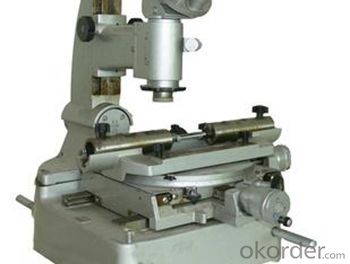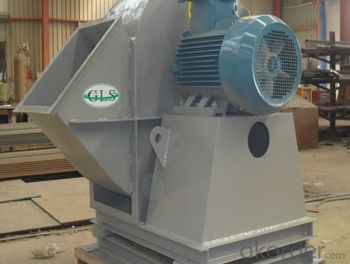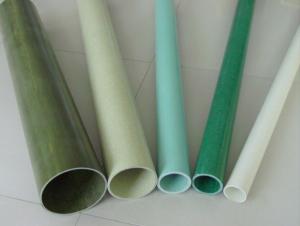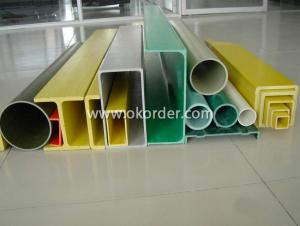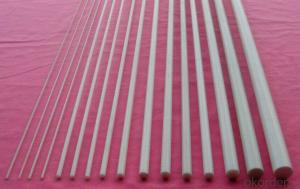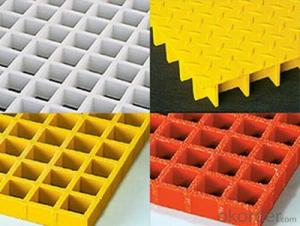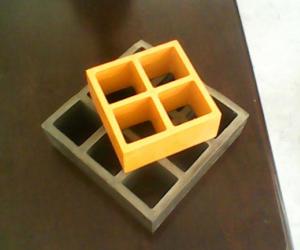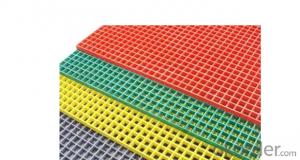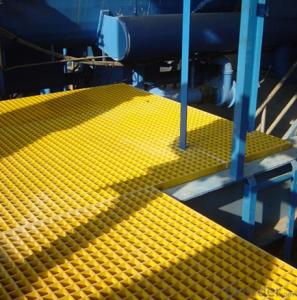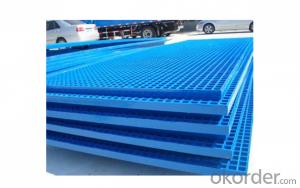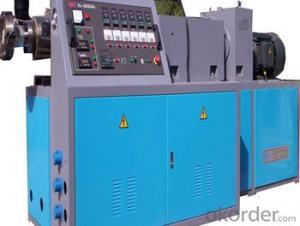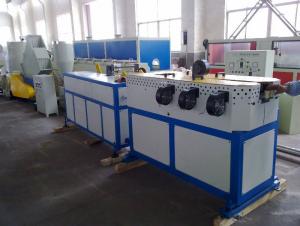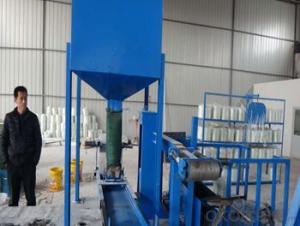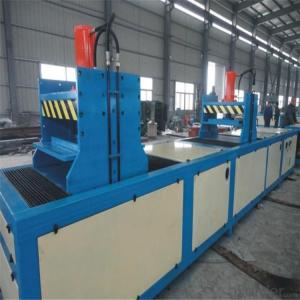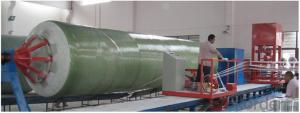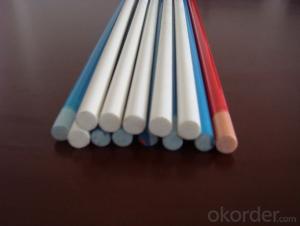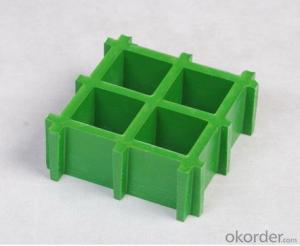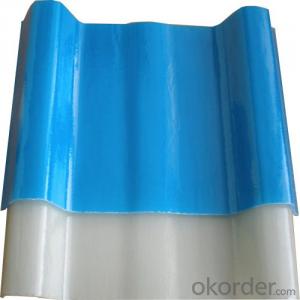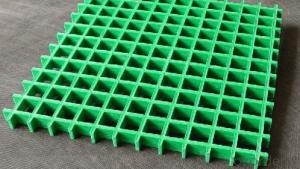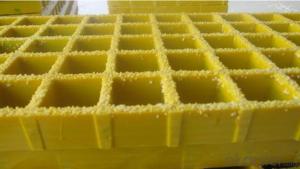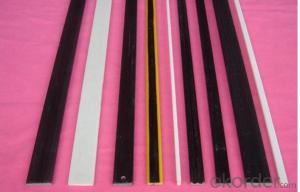FRP Pultrusion Profiles - Anti-Flammable FRP Pultruded Grating with Best Quality
- Loading Port:
- Tianjin
- Payment Terms:
- TT OR LC
- Min Order Qty:
- 4000 m.t.
- Supply Capability:
- 50000 m.t./month
OKorder Service Pledge
OKorder Financial Service
You Might Also Like
PRODUCT DESCRIPTION
Pultruded grating is made by a particular assembly process, which using “I” shape as its main load-bearing and special rod to go through the bearing bar. Pultruded grating include the standard grating and the custom grating, the custom grating can be designed to meet customer’s requirement or special using condition by changing the shape, size and space of the bearing bars, the surface can be covered with lozenge panel, grit panel, or added the anti-slippery sand directly.
FRP pultruded grating has the most characteristics of molded grating, but it has its distinct advantages, it has very high fiberglass content in the loading direction, so it has very high load capability, it has more superiority when used at wide span, so that the basic support will be decreased and the project cost will be reduced accordingly.
SPECIFICATION
Thickness (mm) | Bar width (mm) | Open space (mm) | Open rate (%) | Approx weight (kg/m |
25.4 | 15.2 | 22.8 | 60 | 13.2 |
25.4 | 15.2 | 15.2 | 50 | 15.9 |
25.4 | 15.2 | 10.1 | 40 | 18.5 |
25.4 | 40 | 10.8 | 21 | 14.5 |
38.1 | 15.2 | 22.8 | 60 | 15.8 |
38.1 | 15.2 | 15.2 | 50 | 19.1 |
38.1 | 15.2 | 10.1 | 40 | 22.4 |
50.8 | 25.4 | 25.4 | 50 | 16.6 |
50.8 | 25.4 | 12.7 | 33 | 21.1 |
CHOICE FOR PULTRUDED GRATING
Resin: GP resin, ISO resin, VE resin, Phenol resin
Color choice: Yellow, gray, green, custom color
Surface choice: Groove surface, grit surface, lozenge cover surface
FEATURES
a. Anti-corrosion and anti-rust
b. Light weight and high strength
c. Anti-flammable
d. Anti- fatigue
e. Good economic benefit
f. Anti-ageing
g. Easy of maintenance
h. Excellent electromagnetism property
FIELDS SERVED
Sewage treatment,
water supply and drainage,
chemical industry,
oil industry,
power engineering,
pulp and paper,
construction engineering,
spinning, marine engineering.
APPLICATION
Operation terrace,
stair walkway,
ground floor,
trench cover,
sidewalk,
foot bridge,
equipment safety fence,
scaffold.
COMPANT DESCRIPTION
CNBM,China National Building Materials Group is a state-owned enterprise in charge of administrative affairs in china building materials industry. Established in 1984, CNBM is a large group corporation of building materials with total assets of 25 billion RMB and a total staff of 30,000.CNBM now owns 200 subordinating firms of solely owned and joint-venture companies.
CNBM International Corporation is one subsidiary of CNBM, we focus on offering good-quality products,professional service and complete solution to our customers. Strong delivery capacity, advanced technology& management, strong financing capability and excellent after-sale service are our advantages in sharing international market.
FAQ
1.Q:Are you factory or trading company ?
A:We are Factory produce FRP machines and FRP products.
2.Q:If can customized by customers requirements?
A:yes,we can produce the machine with customized size.
3.Q:How about the payment?
A:We accept any kind of payment.
4.Q:What is the guarantee?
A:Gurantee is one year.
5.Q:If you can training?
A:yes ,we can training in our factory also can send engineers to your factory training.
PICTURES
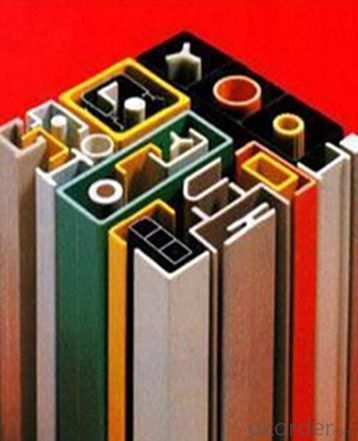
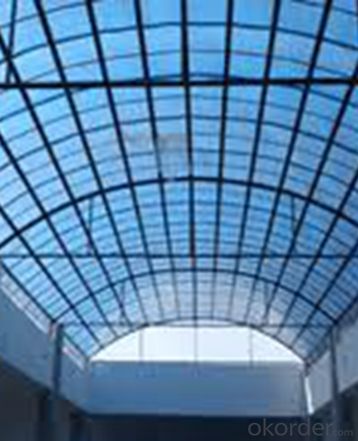
- Q: Can FRP pultrusion profiles be used in the construction of recreational vehicles (RVs)?
- Yes, FRP (Fiber Reinforced Polymer) pultrusion profiles can be used in the construction of recreational vehicles (RVs). FRP pultrusion profiles are known for their high strength-to-weight ratio, corrosion resistance, and durability, making them an ideal material for various applications, including RV construction. RVs require lightweight yet strong materials to ensure fuel efficiency and structural integrity. FRP pultrusion profiles meet these requirements as they are lightweight, yet have high tensile strength and stiffness. This allows for the construction of RVs that are strong and durable, while also being lightweight and easy to tow. In addition, FRP pultrusion profiles have excellent resistance to environmental factors such as moisture, UV radiation, and chemicals. This makes them suitable for outdoor applications, including RVs, where they will be exposed to various weather conditions. Furthermore, FRP pultrusion profiles can be easily customized and molded into various shapes and sizes, allowing for the design flexibility required in RV construction. They can be used for structural components such as frames, chassis, and supports, as well as for interior and exterior panels, floors, and roofs. Overall, the use of FRP pultrusion profiles in the construction of recreational vehicles offers numerous advantages, including strength, durability, lightweight, and resistance to environmental factors. These characteristics make FRP pultrusion profiles a reliable choice for RV manufacturers looking to build high-quality, efficient, and long-lasting vehicles.
- Q: What does M23 grade of glass fiber reinforced plastic section mean?
- Glass fiber reinforced plastic profiles are mainly used in the field: general and environmental units of manhole covers, factories and mines units of insulated cable tray; chemical units of the transmission pipeline; insulation protection fence; including floor and so on. More fields. Advantage is obvious, if the corrosion resistance, insulation resistance, quality is lighter than steel; strength and steel strength comparable.
- Q: Can FRP pultrusion profiles be used in the production of electrical cabinets?
- Yes, FRP (Fiber Reinforced Polymer) pultrusion profiles can be used in the production of electrical cabinets. FRP pultrusion profiles provide excellent electrical insulation properties, high strength-to-weight ratio, and resistance to corrosion, making them suitable for use in electrical cabinets where electrical safety and durability are essential.
- Q: Can not use glass steel support column, the main support for the door
- The epoxy pultruded glass steel section is of high strength and can meet your requirement. You can choose the required section according to your requirement
- Q: What is the compression strength of FRP pultrusion profiles?
- The compression strength of FRP (Fiber Reinforced Polymer) pultrusion profiles varies depending on several factors such as the type of resin, fiber orientation, and design. However, on average, FRP pultrusion profiles have a compression strength ranging from 10,000 to 50,000 pounds per square inch (psi). It is important to note that these values are approximate and may vary depending on the specific application and intended use of the FRP profiles. Additionally, manufacturers typically provide technical data sheets that outline the compression strength and other mechanical properties of their FRP pultrusion products, which can be utilized for more accurate and reliable information.
- Q: Can FRP pultrusion profiles be used in protective barriers?
- Yes, FRP (Fiber Reinforced Polymer) pultrusion profiles can be used in protective barriers. FRP pultrusion profiles are known for their high strength-to-weight ratio, corrosion resistance, and durability, making them suitable for various applications, including protective barriers. These profiles can be designed and manufactured to meet specific requirements, such as impact resistance, load-bearing capacity, and fire resistance. Additionally, FRP pultrusion profiles can be easily molded into different shapes and sizes, allowing for flexibility in barrier design. Whether it is for noise barriers, security fences, or safety barriers, FRP pultrusion profiles offer a reliable and cost-effective solution for protective barriers in numerous industries.
- Q: Are FRP pultrusion profiles resistant to fungal growth?
- Yes, FRP pultrusion profiles are highly resistant to fungal growth. The composite materials used in FRP pultrusion, such as fiberglass and resin, do not provide a suitable environment for fungi to grow. Additionally, the smooth surface of FRP profiles makes it difficult for fungi to attach and thrive. Hence, FRP pultrusion profiles are an excellent choice for applications where resistance to fungal growth is required.
- Q: Are FRP pultrusion profiles resistant to fire?
- FRP pultrusion profiles are known for their fire resistance. They are composed of a resin matrix and reinforcing fibers, such as fiberglass or carbon fiber, which contribute to their excellent fire resistance properties. The resin matrix used in FRP has a high flame resistance rating, while the reinforcing fibers are not easily combustible. Consequently, FRP pultrusion profiles have a high ignition temperature and are naturally self-extinguishing, meaning they stop burning once the flame source is removed. Moreover, FRP pultrusion profiles do not emit toxic fumes or smoke when exposed to fire, making them a safer choice compared to traditional materials like wood or steel. Nevertheless, it is important to acknowledge that the fire resistance of FRP pultrusion profiles may vary depending on the specific resin formulation and reinforcement material utilized.
- Q: Can FRP pultrusion profiles be used in the automotive manufacturing industry?
- Yes, FRP pultrusion profiles can be used in the automotive manufacturing industry. They offer several advantages such as high strength-to-weight ratio, corrosion resistance, and design flexibility. These profiles can be used in various automotive applications including body panels, structural components, and interior trim.
- Q: Are FRP pultrusion profiles resistant to sulfuric acid?
- FRP pultrusion profiles display a notable resistance to sulfuric acid and this corrosion resistance is a key advantage they hold over traditional materials like steel or concrete. Sulfuric acid, known for its highly corrosive nature, poses no threat to FRP pultrusion profiles due to the inherent properties of the composite materials used in their construction. The primary reason behind the corrosion resistance of FRP profiles lies in the resin matrix that encases the reinforcing fibers. The commonly utilized resins in pultrusion, namely polyester, vinyl ester, and epoxy, exhibit remarkable chemical resistance, including resistance to sulfuric acid. However, it is essential to acknowledge that the resistance of FRP pultrusion profiles to sulfuric acid can vary based on multiple factors. The concentration and temperature of the acid, as well as the specific resin formulation employed in the profile, can impact the overall resistance. In scenarios involving highly concentrated acid or elevated temperatures, it is advisable to consult the manufacturer or supplier to ensure that the specific FRP profile meets the necessary resistance requirements. On the whole, FRP pultrusion profiles offer a high level of resistance to sulfuric acid, making them apt for a wide range of applications in industries where this corrosive substance may be present, such as chemical processing, wastewater treatment, or mining.
Send your message to us
FRP Pultrusion Profiles - Anti-Flammable FRP Pultruded Grating with Best Quality
- Loading Port:
- Tianjin
- Payment Terms:
- TT OR LC
- Min Order Qty:
- 4000 m.t.
- Supply Capability:
- 50000 m.t./month
OKorder Service Pledge
OKorder Financial Service
Similar products
Hot products
Hot Searches
Related keywords
